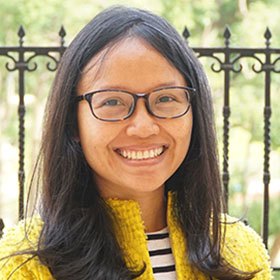The theme of the lecture was a ‘diplomat’s job’ and the whole lecture was given in English. As the lunch break began, the students gathered in the multipurpose room one after another, and the chairs prepared in the room became filled up in a blink of an eye.
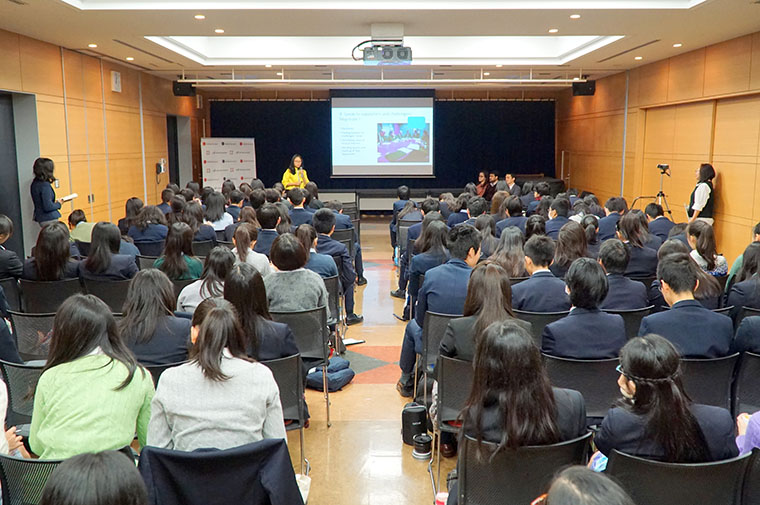
The lecturer was Lintang P. Wibawa, who was a diplomat for the Ministry of Foreign Affairs of Indonesia for more than 10 years and now is studying as a research student at the Graduate Institute of Policy Studies (GRIPS) in Japan. She talked about the work of a diplomat from negotiations at various international conferences such as APEC and the experience of being an assistant to the chairman.
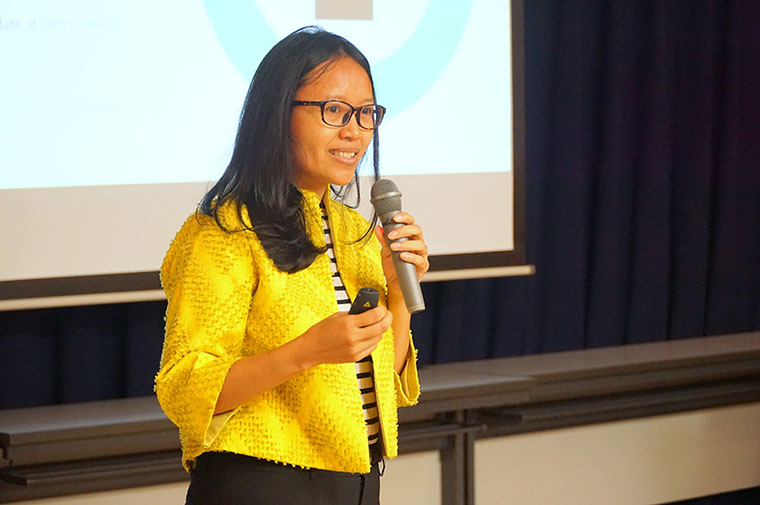
“What images do you have about diplomats?”
She asked the audience.
“My friend says, “It is fun, because you can go abroad” was one response. The image that society often has is that diplomats “have international conferences or big dinners”. Ms. Wibawa said, actually, I feel being a diplomat is like being “a soldier fighting”.
The students were surprised at images she introduced. The students were naturally drawn into Ms.Wibaw’s story.

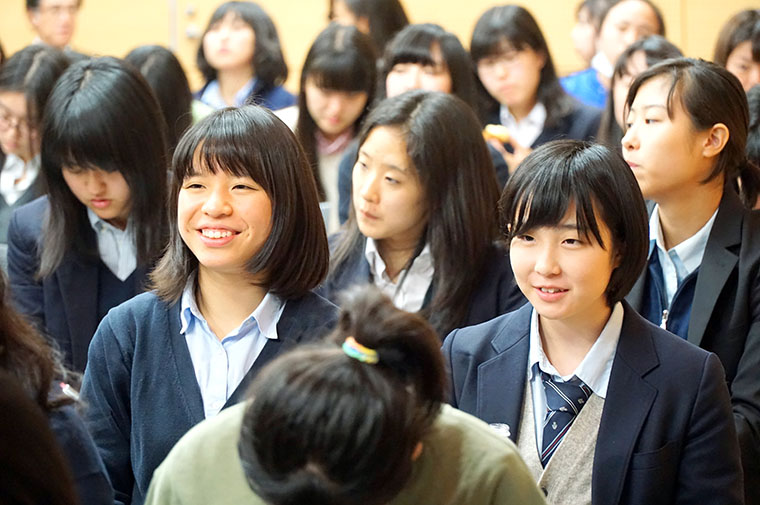
Despite its development in recent years, colonial rule continued in Indonesia until 1950. It has a short history as an independent country. Ms.Wibaw explained that the infrastructure there is still developing.
Ms. Wibawa explained the lack of unified infrastructure despite the large size of the country and the large population causes various problems.
Ms.Wibaw worked as a diplomat for the Ministry of Foreign Affairs of Indonesia since 2003 helping to solve such problems in her home country.
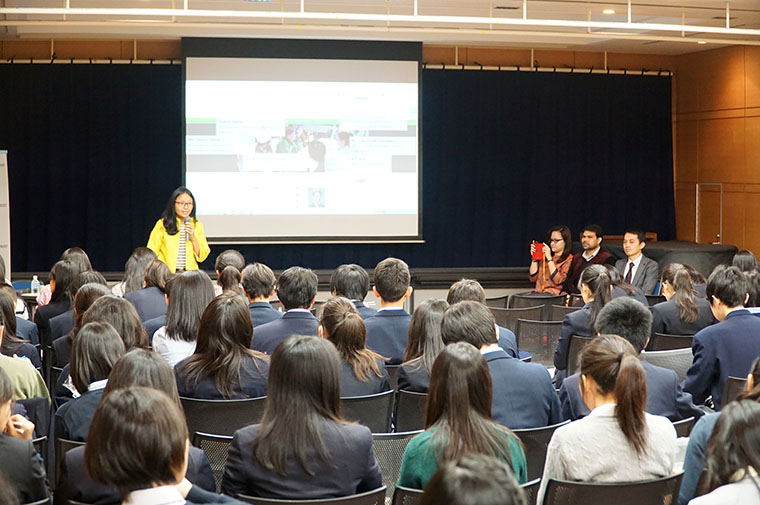
“The job of a diplomat is to conduct various investigations, to participate in international conferences, and to solve the problems of the country through presentations and negotiations. It means, diplomats work together and with foreign countries to solve the global problems that we cannot solve on our own.” She told the students about a diplomat’s job and its significance.
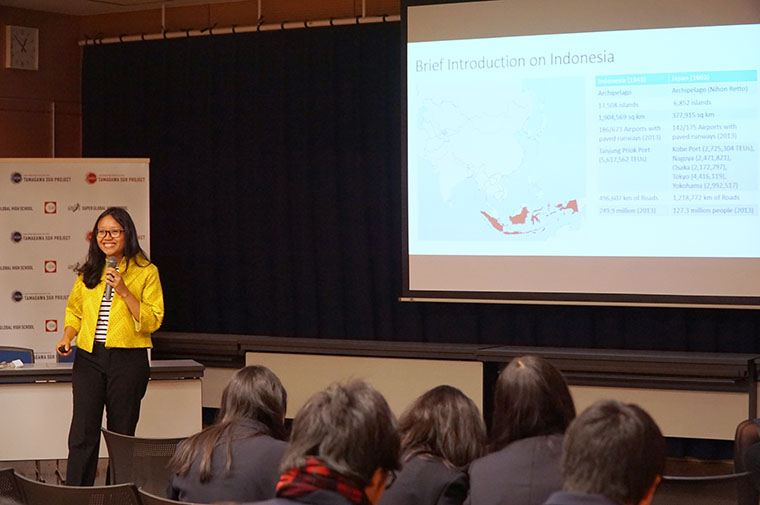
“Have you ever been to Indonesia?” “”What do you think diplomats do?” she asked the students.
While the lecture was delivered English, the content was clearly transmitted to the students..
Among the points of interest was the story of an international conference which let the students feel a sense of real diplomacy..
At international conferences, after countries discuss the issues, diplomats work to create concrete solutions at the spot. However, she says negotiations and coordination are always difficult.
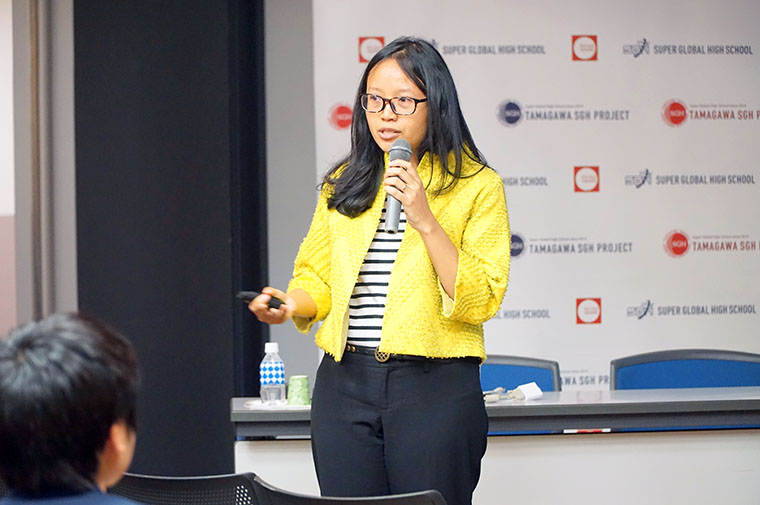
At one international conference, Indonesia asked for assistance on developing infrastructure which was largely accepted by many countries including Japan. However, an American diplomat said, “If infrastructure is going to be developed it is necessary to obtain funds through trade.”
She explained over and over, and insisted that “we cannot trade without infrastructure”, and could not reach an agreement.
But Ms.Wibawa did not give up and continued negotiating persistently while thinking about mutual benefit, and she was able to win a compromise that balanced trade and infrastructure, satisfying both sides.
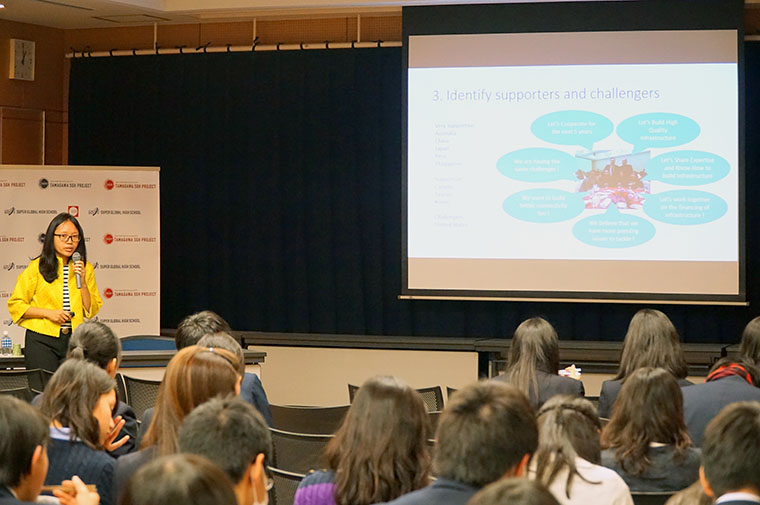
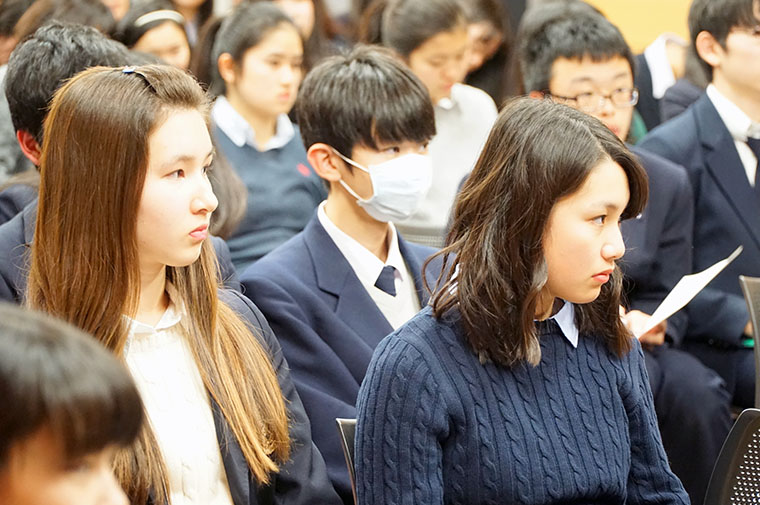
“There is always room for negotiation, even if there is a country with the opposite opinion to us. We need to find the mutual benefit, so we can build international cooperation and work to solve global issues.”
Ms.Wibawa’s concluding message at the end was full of confidence and enthusiasm backed by her experience.
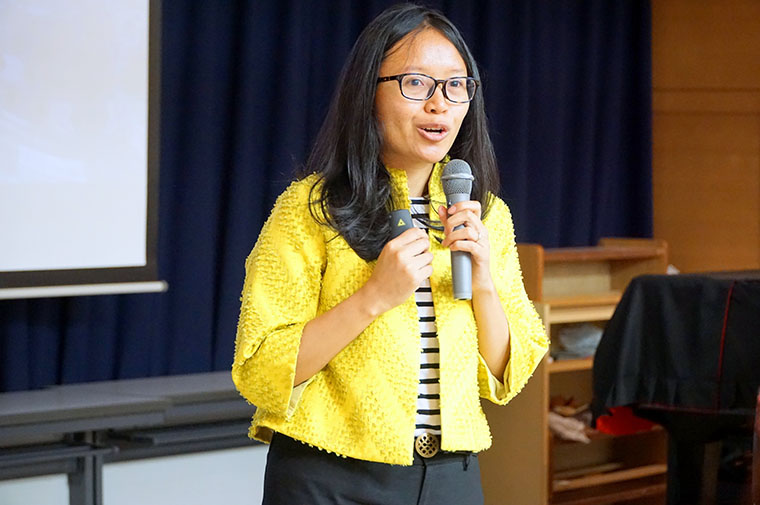
After she finished speaking, the audience asked questions like “How can I build my negotiating skills?” “What is the difference between working as a diplomat and working in an international organization?” “What do you think will happen in Indonesia and the world 10 years in the future?”.
After the lecture, the audience stayed very engaged with questions continuing until the time limit.
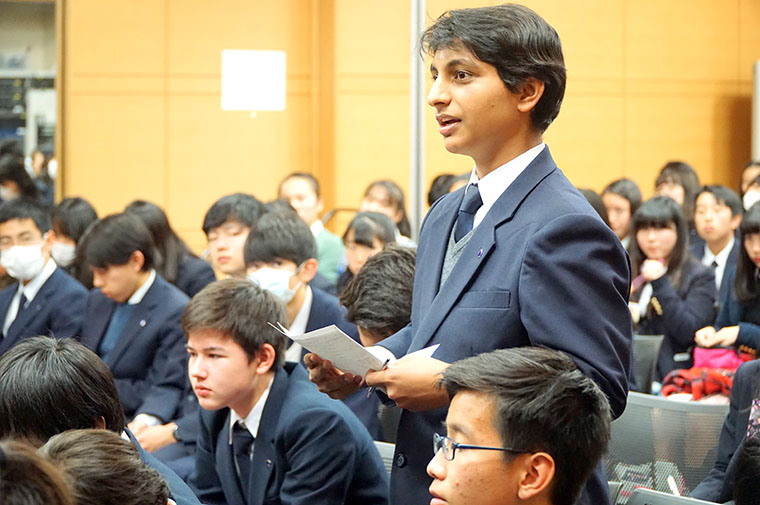
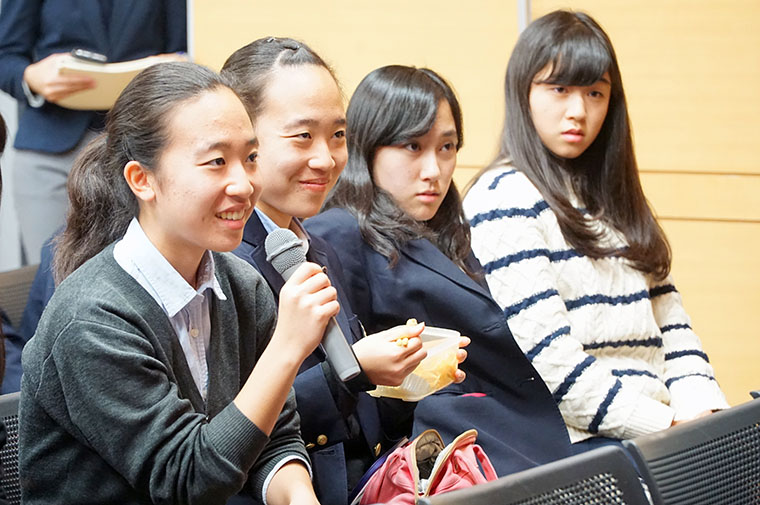
“It is important for diplomats to be neutral while negotiating. We must accept the views of our partners but, also not forget our own claims. Being neutral is a difficult thing, but it’s the secret to make negotiations work.”
While answering questions, she taught the students about “the tips of her work” that she learned over time.
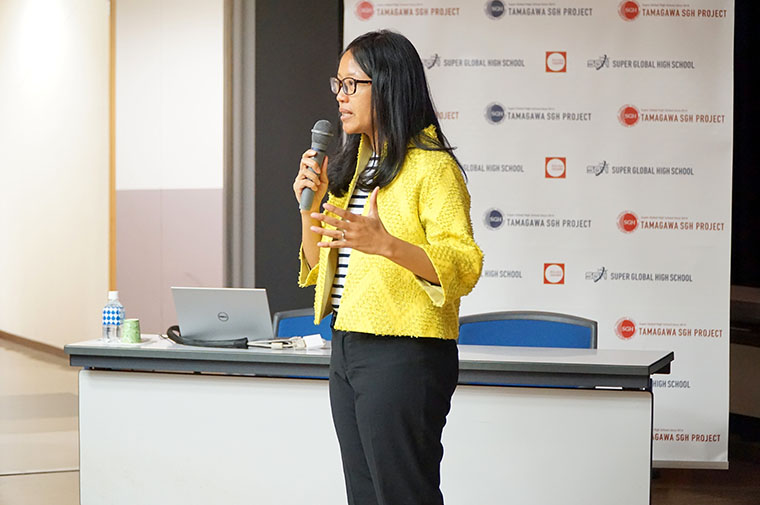
Ms.Wibawa has been working to solve global issues as well as increasing development in her home country while balancing relationships with various countries. The students felt the realities of the work done by diplomats around the world during their negotiations. They were able to widen their awareness of the world to a greater extent.




